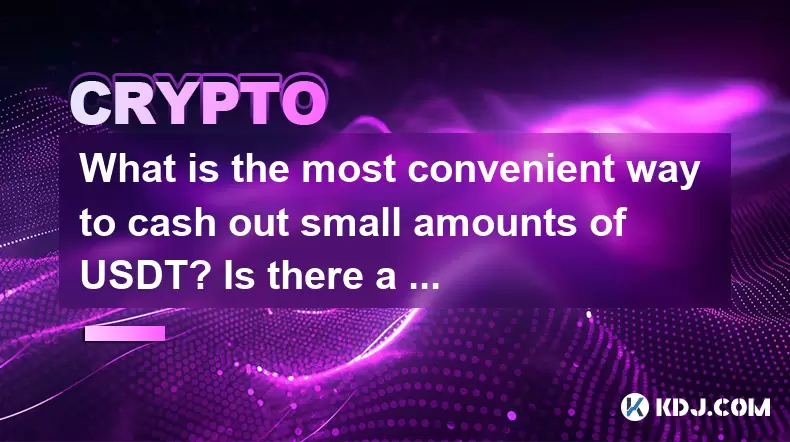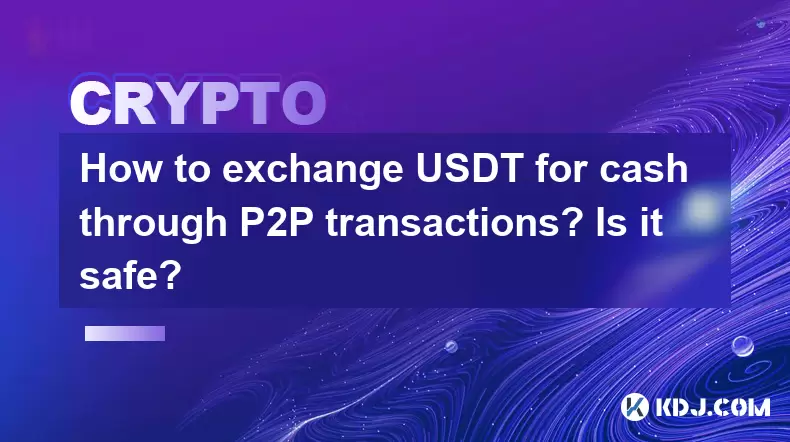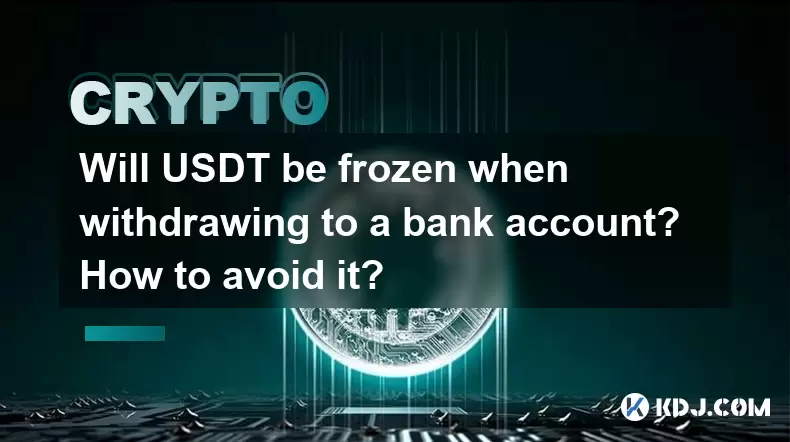-
 bitcoin
bitcoin $87959.907984 USD
1.34% -
 ethereum
ethereum $2920.497338 USD
3.04% -
 tether
tether $0.999775 USD
0.00% -
 xrp
xrp $2.237324 USD
8.12% -
 bnb
bnb $860.243768 USD
0.90% -
 solana
solana $138.089498 USD
5.43% -
 usd-coin
usd-coin $0.999807 USD
0.01% -
 tron
tron $0.272801 USD
-1.53% -
 dogecoin
dogecoin $0.150904 USD
2.96% -
 cardano
cardano $0.421635 USD
1.97% -
 hyperliquid
hyperliquid $32.152445 USD
2.23% -
 bitcoin-cash
bitcoin-cash $533.301069 USD
-1.94% -
 chainlink
chainlink $12.953417 USD
2.68% -
 unus-sed-leo
unus-sed-leo $9.535951 USD
0.73% -
 zcash
zcash $521.483386 USD
-2.87%
Do USDT transactions need to pay taxes?
USDT tax implications vary by location and usage; profits are typically taxed as capital gains, while using USDT for purchases may incur sales tax. Ignoring reporting requirements can result in severe penalties.
Mar 22, 2025 at 05:00 am

- The tax implications of USDT transactions depend heavily on your jurisdiction and how you use USDT.
- Profit from trading USDT is generally taxable as capital gains in most countries.
- Using USDT for goods and services may be subject to sales tax or VAT.
- Reporting requirements vary widely across different tax systems.
- Ignoring tax obligations related to USDT transactions can lead to significant penalties.
The question of whether USDT transactions require tax payments is complex and doesn't have a simple yes or no answer. The taxability of USDT transactions hinges on several factors, primarily your location and the nature of your USDT activities. USDT, while often treated like a currency, is legally classified differently depending on the jurisdiction. This impacts how tax authorities view its use.
Tax Implications Based on UsageThe tax treatment of your USDT transactions largely depends on how you use them. If you're trading USDT for profit, viewing it as a speculative investment, then any gains are usually considered taxable capital gains. This is similar to the taxation of profits from trading stocks or other assets. The specific tax rate will depend on your individual circumstances and your country's tax laws. Capital gains taxes can be complex and often depend on the length of time you held the USDT before selling.
If you use USDT to purchase goods or services, the transaction might be subject to sales tax, Value Added Tax (VAT), or Goods and Services Tax (GST), depending on your location. This applies even if you're using USDT as a payment method rather than a direct investment. The tax is levied on the value of the goods or services acquired, not on the USDT itself.
Jurisdictional Differences in USDT TaxationTax laws concerning cryptocurrencies, including USDT, are still evolving globally. Different countries have adopted different approaches, ranging from complete disregard to strict regulatory frameworks. Some countries might treat USDT as a currency, while others might classify it as a commodity or security, each having different tax implications.
For example, some countries might not have specific regulations for cryptocurrencies yet, leaving taxpayers in a gray area. Others have implemented explicit rules, requiring detailed reporting of all cryptocurrency transactions. Understanding your country's specific regulations is crucial to ensure compliance.
Step-by-Step Guide to Potentially Taxable USDT TransactionsHere's a breakdown of common scenarios and their potential tax implications:
- Buying USDT: The initial purchase of USDT might not be directly taxable in some jurisdictions, but it establishes a cost basis for future calculations. This cost basis is vital when you later sell your USDT for a profit or loss.
- Trading USDT: Profits from trading USDT (buying low, selling high) are typically taxable as capital gains. Losses might be deductible against other capital gains, but the specific rules are jurisdiction-dependent.
- Using USDT for Payments: When using USDT to pay for goods or services, the transaction may be subject to sales tax or VAT on the value of the goods or services. The seller might be responsible for collecting and remitting these taxes.
- Receiving USDT as Income: If you receive USDT as payment for goods or services or as wages, it's considered taxable income in most jurisdictions. You’ll need to report this income accordingly.
- Staking or Lending USDT: Income generated from staking or lending USDT is generally considered taxable income. The specific rules for reporting this type of income can be complicated and depend on your local tax laws.
Reporting requirements for USDT transactions vary considerably based on your location. Some countries might require you to report all cryptocurrency transactions, while others may only require reporting of transactions above a certain threshold. Many tax authorities are still developing guidelines for reporting crypto transactions, so staying updated on these developments is essential.
Failing to report taxable USDT transactions can result in significant penalties, including fines and even criminal charges in some jurisdictions. It's always advisable to seek professional tax advice if you're unsure about your tax obligations.
Common Questions and Answers:Q: Do I need to pay taxes on USDT if I only hold it and don't trade it?A: No, simply holding USDT without trading or generating income from it typically doesn't trigger tax implications in most jurisdictions. However, you should still keep accurate records of your holdings for future reference, especially if you plan to sell it later.
Q: What if I use USDT to buy something internationally?A: The tax implications will depend on both your country of residence and the country where you make the purchase. Sales taxes, import duties, or other taxes might apply. You should research the tax regulations of both countries involved.
Q: Is there a specific form I need to use to report my USDT transactions?A: The specific forms and reporting requirements vary significantly depending on your location. You need to consult your country's tax authority or a tax professional for accurate guidance on the appropriate forms and procedures.
Q: Can I deduct losses from USDT trading against my other income?A: Generally, you can deduct capital losses from cryptocurrency trading against capital gains, but the rules are complex and jurisdiction-specific. You should consult a tax professional for advice tailored to your situation.
Q: What happens if I don't report my taxable USDT transactions?A: Failing to report taxable USDT transactions can result in significant penalties, including back taxes, interest, and potentially criminal charges, depending on the severity and jurisdiction. Honest reporting is always the best approach.
Disclaimer:info@kdj.com
The information provided is not trading advice. kdj.com does not assume any responsibility for any investments made based on the information provided in this article. Cryptocurrencies are highly volatile and it is highly recommended that you invest with caution after thorough research!
If you believe that the content used on this website infringes your copyright, please contact us immediately (info@kdj.com) and we will delete it promptly.
- Super Bowl LX: Coin Toss Trends Point to Tails Despite Heads' Recent Surge
- 2026-01-31 07:30:02
- Aussie Prospector's Ancient Find: Japanese Relics Surface, Rewriting Gold Rush Lore
- 2026-01-31 07:20:01
- US Mint Adjusts Coin Prices: Clad Collector Sets See Significant Hikes Amidst Special Anniversary Releases
- 2026-01-31 07:20:01
- THORChain Ignites Fiery Debate with CoinGecko Over Bitcoin DEX Definitions: A Battle for True Decentralization
- 2026-01-31 07:15:01
- Fantasy Football Frenzy: Key Picks and Pointers for Premier League Round 24
- 2026-01-31 06:40:02
- Cryptocurrencies Brace for Potential Plunge in 2026 Amidst Market Volatility
- 2026-01-31 07:15:01
Related knowledge

How to choose a reliable USDT exchange service provider? How to identify?
Jun 12,2025 at 03:15pm
Understanding the Role of USDT in Cryptocurrency TradingUSDT (Tether) is one of the most widely used stablecoins in the cryptocurrency market. It is d...

What is the most convenient way to cash out small amounts of USDT? Is there a shortcut?
Jun 11,2025 at 11:00pm
Understanding the Need to Cash Out Small USDT AmountsCashing out small amounts of USDT can be a challenge for many crypto users. Traditional methods o...

How to transfer USDT to PayPal or international payment tools?
Jun 15,2025 at 05:28am
Understanding the Basics of USDT and PayPal IntegrationUSDT (Tether) is a stablecoin pegged to the US dollar, offering blockchain-based value transfer...

How to exchange USDT for cash through P2P transactions? Is it safe?
Jun 18,2025 at 07:56am
Understanding USDT and P2P TransactionsTether (USDT) is a stablecoin pegged to the value of the US dollar, making it a popular choice for users who wa...

Will USDT be frozen when withdrawing to a bank account? How to avoid it?
Jun 15,2025 at 10:03am
Understanding USDT Withdrawals and Bank Account Freezing RisksWhen users decide to withdraw USDT (Tether) to a bank account, one of the most common co...

How to avoid risks when exchanging USDT for cash? What are the pitfalls?
Jun 11,2025 at 08:14pm
Understanding the Risks of Exchanging USDT for CashWhen exchanging USDT (Tether) for cash, users must be aware of the potential risks involved. As a s...

How to choose a reliable USDT exchange service provider? How to identify?
Jun 12,2025 at 03:15pm
Understanding the Role of USDT in Cryptocurrency TradingUSDT (Tether) is one of the most widely used stablecoins in the cryptocurrency market. It is d...

What is the most convenient way to cash out small amounts of USDT? Is there a shortcut?
Jun 11,2025 at 11:00pm
Understanding the Need to Cash Out Small USDT AmountsCashing out small amounts of USDT can be a challenge for many crypto users. Traditional methods o...

How to transfer USDT to PayPal or international payment tools?
Jun 15,2025 at 05:28am
Understanding the Basics of USDT and PayPal IntegrationUSDT (Tether) is a stablecoin pegged to the US dollar, offering blockchain-based value transfer...

How to exchange USDT for cash through P2P transactions? Is it safe?
Jun 18,2025 at 07:56am
Understanding USDT and P2P TransactionsTether (USDT) is a stablecoin pegged to the value of the US dollar, making it a popular choice for users who wa...

Will USDT be frozen when withdrawing to a bank account? How to avoid it?
Jun 15,2025 at 10:03am
Understanding USDT Withdrawals and Bank Account Freezing RisksWhen users decide to withdraw USDT (Tether) to a bank account, one of the most common co...

How to avoid risks when exchanging USDT for cash? What are the pitfalls?
Jun 11,2025 at 08:14pm
Understanding the Risks of Exchanging USDT for CashWhen exchanging USDT (Tether) for cash, users must be aware of the potential risks involved. As a s...
See all articles










































































